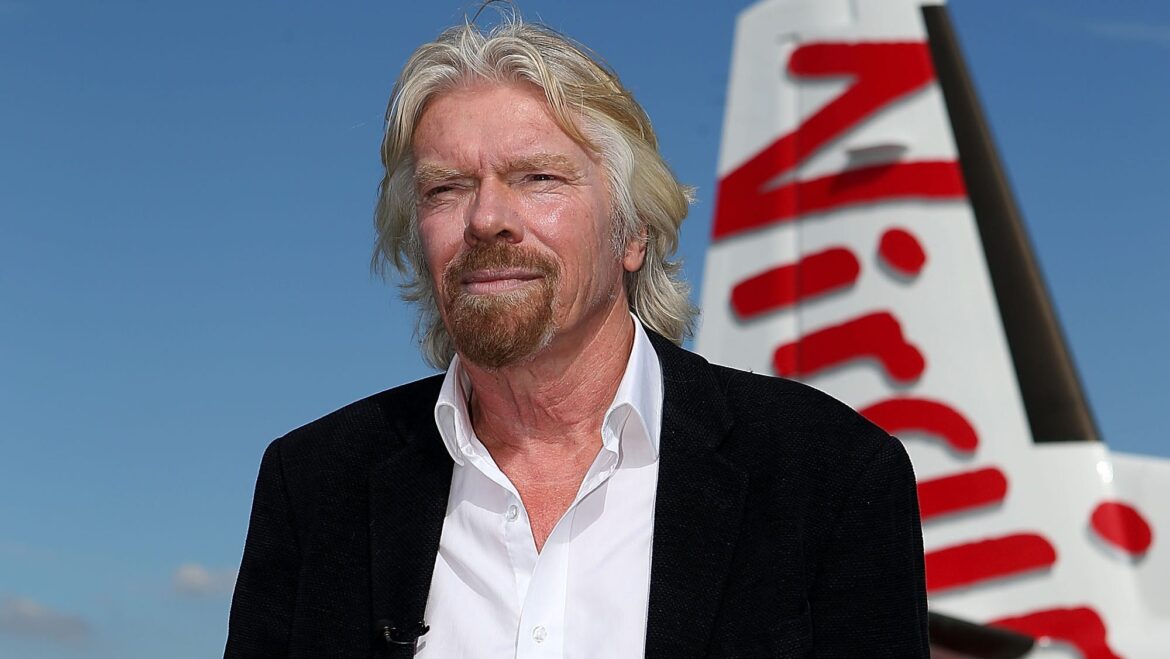Richard Branson, the founder of the Virgin Group, is a name synonymous with risk, innovation, and, above all, resilience. Throughout his remarkable career, Branson has pushed the boundaries of what’s possible in business, transforming the Virgin brand into a global powerhouse that spans multiple industries—from music to airlines to space travel. His boldness in taking risks has not only fueled his success but also provided invaluable lessons for entrepreneurs seeking to navigate the unpredictable world of business.
One of the most notable aspects of Branson’s career is his willingness to step into uncharted waters and take calculated risks. From launching Virgin Records at a time when the music industry was dominated by giants to venturing into the airline industry with Virgin Atlantic, Branson’s instinct has always been to challenge the status quo. His approach to risk-taking is not reckless but strategic, based on careful assessment and a belief in his own vision. Branson’s entrepreneurial spirit is grounded in the understanding that without risk, there is no reward—and no opportunity for significant growth.
What stands out about Branson’s approach to risk is how he views failure. Rather than being deterred by setbacks, Branson embraces failure as a natural and essential part of the entrepreneurial journey. He has faced many challenges and failures over the years, from the collapse of Virgin Cola to the struggles of Virgin Airship, but each time he has bounced back stronger. Branson’s ability to learn from his mistakes and not be defeated by them is a core part of his resilience. For entrepreneurs, this lesson is crucial: setbacks are not the end, but stepping stones to success.
Branson’s resilience is also evident in his adaptability. As industries have evolved, so too has Branson’s approach to business. In the early 2000s, Virgin was known for its innovation in the airline industry, but as the market became saturated, Branson pivoted to space with Virgin Galactic, seeking to democratize space travel. This bold pivot exemplifies the importance of adaptability in entrepreneurship. The ability to shift focus when necessary and embrace new challenges is a defining characteristic of resilient leaders.
Another key lesson from Branson’s risk-taking is the importance of building a strong, supportive team. He often credits his success to the people around him, emphasizing the value of hiring the right individuals and fostering a company culture that encourages collaboration and creativity. Branson’s leadership is not about micromanaging but empowering his team to take risks alongside him, making resilience a collective effort. In times of uncertainty, the strength of your team can help carry the business through challenges.
Branson’s willingness to take risks is also rooted in his deep passion for his ventures. Whether it’s launching a new airline or exploring space, Branson’s ventures are driven by a genuine interest in the industry and a desire to make a positive impact. Passion fuels resilience because when entrepreneurs are passionate about what they’re doing, they are more likely to push through the tough times and persevere in the face of adversity.
Perhaps one of the most profound lessons from Branson’s career is his ability to remain optimistic, no matter the obstacles. Branson’s infectious enthusiasm and positive attitude have been key to his resilience. He approaches each challenge with a sense of optimism that not only inspires his team but also enables him to see opportunities where others may see only problems. For entrepreneurs, maintaining an optimistic outlook can be a game-changer, helping to stay motivated and driven even when the going gets tough.
In addition to optimism, Branson advocates for taking personal responsibility and being willing to put yourself on the line. Whether it’s jumping out of an airplane to promote Virgin Atlantic or personally financing ventures that others might have deemed too risky, Branson’s willingness to take risks himself sets him apart from many business leaders. This hands-on approach is a reminder that leadership in entrepreneurship often means stepping into the unknown and taking ownership of both the triumphs and the failures.
Branson’s career demonstrates that resilience in business is not about avoiding risk or failure but embracing both. By approaching risk strategically, learning from setbacks, adapting to new circumstances, building a supportive team, staying passionate, maintaining optimism, and taking personal responsibility, entrepreneurs can navigate the complexities of the business world and emerge stronger. Richard Branson’s ability to bounce back from adversity and keep pushing the envelope offers invaluable lessons in resilience for anyone with an entrepreneurial mindset.
For more insights into entrepreneurship, innovation, and leadership, visit www.innovationtimes.com and sign up today to stay ahead of the curve!



